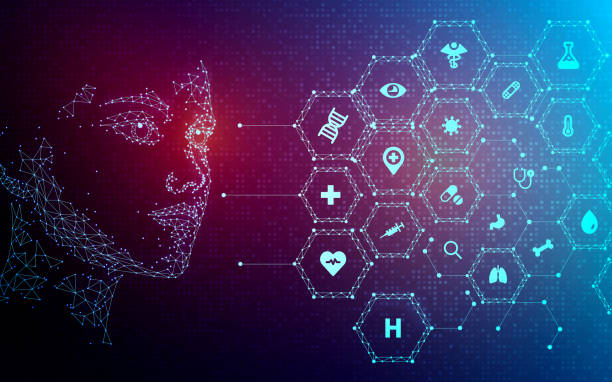The Power of Artificial intelligence in Healthcare has made significant progress in recent years, and its use in healthcare has been no exception. The healthcare industry has long been reliant on technological advancements, and the application of artificial intelligence is revolutionising the industry. From diagnosing to treating, artificial intelligence is enhancing patient outcomes and delivering improved healthcare services. This blog will delve into the various applications of artificial intelligence in the healthcare industry.
One of the most significant applications of artificial intelligence in healthcare is in medical diagnosis. With the help of machine learning algorithms, computers can analyze medical images and detect abnormalities or diseases. For example, a recent study found that an artificial intelligence algorithm could detect breast cancer from mammogram images with a higher accuracy rate than trained radiologists. Such applications of artificial intelligence have the potential to improve the accuracy and speed of medical diagnoses, leading to better patient outcomes.
In healthcare, artificial intelligence plays a crucial role in treatment planning. Treatment planning involves analyzing a patient’s medical history, symptoms, and other clinical data to determine the best course of treatment. Artificial intelligence algorithms can analyze large amounts of medical data and provide insights that can aid physicians in developing effective treatment plans. In some cases, artificial intelligence can even suggest treatments that a physician may not have considered.
Patient monitoring in healthcare also involves the application of artificial intelligence. Wearable devices equipped with sensors and artificial intelligence algorithms can monitor a patient’s health status in real-time. These devices can detect changes in a patient’s vital signs and alert healthcare professionals if there is a concern. This type of monitoring can be particularly beneficial for patients with chronic conditions or those recovering from surgery.
Another way artificial intelligence is being used in healthcare is through the use of chatbots. Chatbots are computer programs that can communicate with patients and answer their questions. Healthcare providers can use chatbots to provide basic medical advice or answer common questions. In some cases, chatbots can even diagnose simple conditions and suggest treatments.
Artificial intelligence is also being used in healthcare for drug discovery. Drug discovery is a long and costly process, but artificial intelligence can speed up the process by identifying potential drug candidates. Machine learning algorithms can analyze vast amounts of data and identify compounds that have the potential to treat specific diseases. This approach has the potential to reduce the time and cost of drug discovery while also improving the success rate.
In conclusion, The Power of Artificial Intelligence in Healthcare is changing the healthcare industry in significant ways. From diagnosis to treatment, patient monitoring, and drug discovery, artificial intelligence is being used to improve patient outcomes and provide better healthcare services. While there are still challenges to overcome, such as data privacy and ethical considerations, the potential benefits of using artificial intelligence in healthcare are too significant to ignore. As the technology continues to develop, we can expect to see even more innovative applications of artificial intelligence in healthcare.
https://www.ibm.com/topics/artificial-intelligence-healthcare

